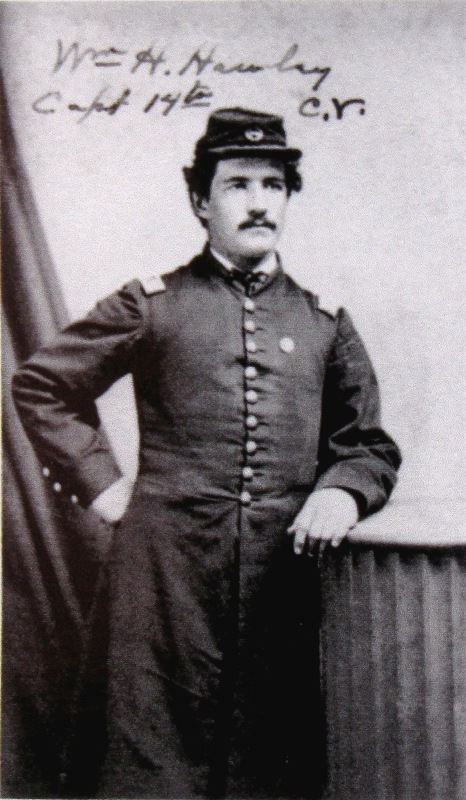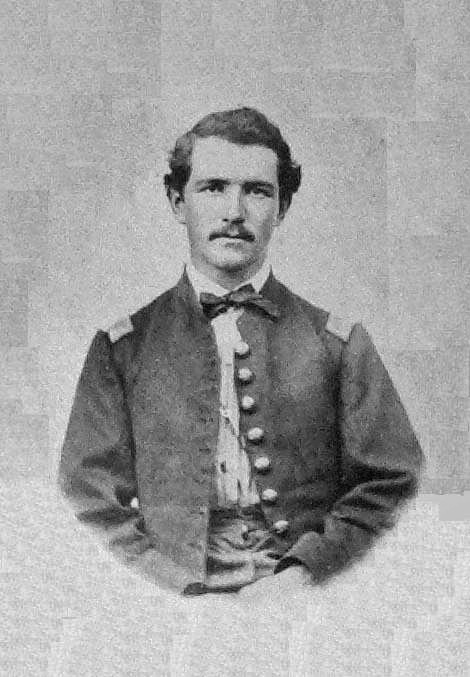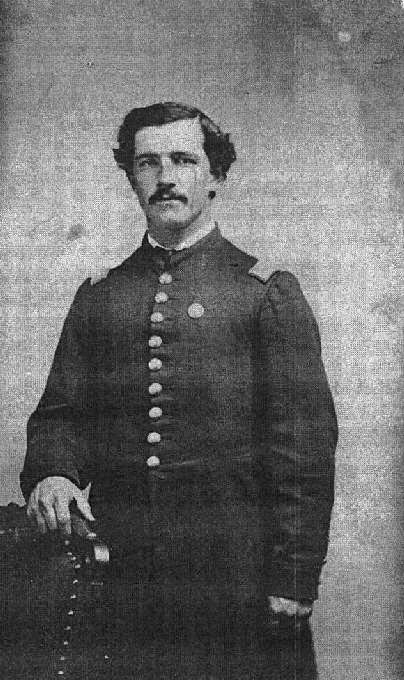|
Captain WILLIAM H. HAWLEY |
||
|
Captain WILLIAM H. HAWLEY was born at Bridgeport, Oct. 5th, 1840. He resided in Bridgeport until July, 1862, when he threw up an excellent position as a book-keeper to enlist as a private in Co. A of the 14th, in which his brother, Lieut. F. B. Hawley, was then orderly sergeant. He was speedily made a sergeant, and thrice in the same year promoted, to 2d lieutenant May 16, 1863; 1st lieutenant, Sept. 27; and captain, Nov. 16. His ability and soldierly bearing attracted the attention of his general officers, and he was detailed first upon Col. Carroll’s staff, then as brigade inspector upon the staff of Gen. Thomas A. Smythe, 2d brigade, 3d division, 2d corps, the 14th regiment being one of the brigade. Always faithful and efficient when with the regiment, Capt. Hawley won further distinction as a staff officer, and a promising career seemed opening before him, when, in the severe engagement at Ream’s Station, on the Weldon railroad, August 25th, 1864, he was shot through the head while directing the skirmish line. He fell from his horse, breathed two or three times and expired. His body was embalmed and sent home to Bridgeport. The city government passed appropriate resolutions, and assumed the arrangements for the funeral. The services were held from the South Congregational Church (of which he was a member,) conducted by Rev. Dr. Hewitt and Rev. Alexander R. Thompson, of New York. A military escort was in attendance, minute guns were fired, and all the church bells tolled. From a letter, from a dear friend of Capt. Hawley, I make the following extracts: “His chief characteristics were an even, unruffled temper, a noble, generous spirit, unspotted integrity, bravery and fearlessness in duty.” * * * “His was a whole hearted consecration, and had he known to a certainty that he would be killed I think he would not have hesitated a moment at the sacrifice.” Two incidents of his career here narrated mark these qualities: “Col. Carroll being wounded was released from duty and went to his home in Philadelphia. He wanted Capt. Hawley to go with him, and he was at liberty to go and thus have an opportunity of visiting his much loved home, but he declined the tempting offer feeling that he was more needed at his post of duty and danger. On another occasion he declined an honorable but less dangerous position than the one he held, being unwilling to even appear to shrink from duty.” That the writer has not over-praised him we all know, and the resolutions passed on his death by his brother officers testify that he died as he had lived,“An heroic Christian soldier.” |
||


